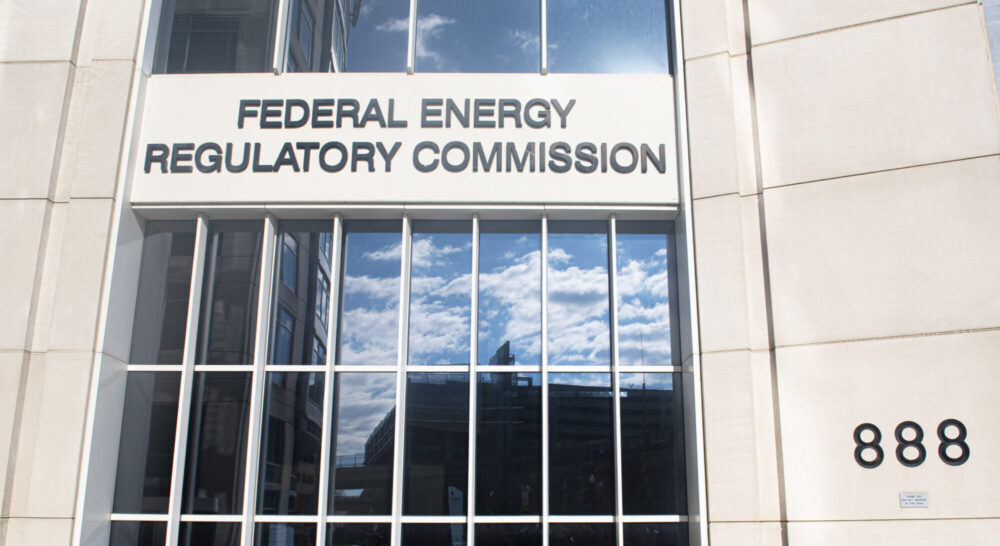Comments submitted in FERC proceedings by the Electricity Law Initiative
- Electricity Regulation Comment in Support of Consumers. Argues that FERC should not penalize consumers for a utility’s imprudent decisions by demanding that a party challenging rates generate alternative investments that the utility should have pursued and suggests FERC look to state utility commission decisions about imprudence for guidance. (Dec. 2024)
- Comments supporting FERC’s efforts to reduce costs for new power plants connecting to the transmission system. Rebuts utility arguments that federal law entitles them to specific transmission investment opportunities and argues that FERC’s proposal is consistent with long-standing goals of promoting competition and protecting consumers. (Oct 2024)
- Protest of PJM Utilities’ Amendments to the Consolidated Transmission Owners Agreement. Argues that the PJM utilities’ proposal would undermine PJM’s independent decisionmaking processes and violates federal law. (Jul. 2024) (Reply to PJM Utilities’ Response, Sep. 2024; Reply to Deficiency Letter Responses, Oct. 2024)
- Request for Rehearing and Clarification about FERC’s Long-Term Regional Transmission Planning Rule (Order No. 1920). Urges FERC to mandate that utilities file cost allocation proposals agreed to by state regulators and suggests that FERC find that its transmission planning rules are tied to its duty to prevent unduly discriminatory transmission service. (Jun. 2024)
- Response to Utility Group’s Filing in the Transmission Planning Rulemaking Docket. Argues that while the utility group’s filing is too late for consideration in this proceeding it raises important questions about the institutions planning transmission expansion. (Mar. 2024)
- Comment on the NARUC-FERC Task Force. Suggests that FERC and state utility regulators discuss regional transmission governance at an upcoming meeting (Jan. 2024)
- Post-Technical Conference Comments on FERC Oversight of Transmission Rates. Urges FERC to expand utility disclosures in planning processes and rate proceedings and develop a new approach to reviewing utility expenditures that enables transmission customers to viably challenge transmission rates. (March 2023)
- Supplemental Reply Comments on FERC’s Transmission Planning Rule. Argues that FERC’s proposed rule does not violate the “Major Questions Doctrine” and shows that FERC has approved planning processes that contain elements similar to those in FERC’s proposal (Dec. 2022)
- Pre-Technical Conference Comments on FERC Oversight of Transmission Rates. Shows that FERC has minimized its direct oversight of transmission rates and proposes new oversight mechanisms designed to protect consumers from inefficient transmission investments. Also, Post-Conference Filing with evidence from other dockets. (Oct. 2022)
- Comment on FERC’s Transmission Planning Proposed Rule. Argues that FERC’s proposal to end competitive transmission development processes and replace them with joint ventures between investor-owned utilities (IOU) will not benefit consumers and suggests three alternatives to FERC’s proposal. (Aug. 2022)
- Comment on FERC’s inquiry into its Uniform System of Accounts. Argues that the Commission’s approach to utility trade association dues has not kept pace with the industry’s evolution. It should include utility expenditures aimed at influencing public opinion on utility regulation and adopt a broad understanding of utility efforts to influence public officials and the public (Feb. 2022).
- Reply Comment on FERC’s Transmission ANOPR. Urges FERC not to abandon competitive transmission development and suggests that competition can help align transmission rates with reliability (Nov. 2021).
- Initial Comment on FERC’s Transmission Advanced Notice of Proposed Rulemaking (ANOPR). Details FERC’s extensive authority to remedy utility conduct that is “unduly discriminatory,” shows that FERC’s proposed planning reforms fit within that authority, and outlines how FERC can review the prudency of certain utility transmission investments (Oct. 2021).
- Comment on FERC’s Office of Public Participation. Explains that Congress designed an Office of Public Participation that is independent of the Commission, urges FERC to include monitoring of Regional Transmission Organizations (RTOs) in the Office’s portfolio, and suggests what RTO monitoring might entail (May 2021).
- Testimony and Supporting Research Presented at FERC Conference on Carbon Pricing in RTO/ISO Markets. Argues that FERC has authority to approve a state-determined carbon price that is implemented in RTO/ISO energy markets and responds to questions on FERC’s September 30, 2020 carbon pricing technical conference agenda (Sept. 2020).
- Comment of the Electricity Regulation Scholars. Opposes a petition asking FERC to assert jurisdiction over net metering with four arguments, including that excess energy flows from behind a retail meter are not “in interstate commerce” under the Federal Power Act (Jun. 2020).
- Comments to FERC on Proposed Revisions to Its Rules Implementing Section 210 of the Public Utility Regulatory Policies Act of 1978 (PURPA). Argues that the proposal cannot be reconciled with the statute’s unambiguous instruction to encourage development of Qualifying Facilities. Legislative History Appendix (Nov. 2019).
- Comment to FERC about Commissioner McNamee’s Participation in Certain Matters. Argues that FERC Commission McNamee is disqualified from proceedings that relate to work he conducted while serving at the US Department of Energy (Dec. 2018).
- Comment to FERC on PJM Generators’ Stranded Cost Arguments. Urges FERC to reject generators’ attempt to force a choice between a “clean” capacity auction and stranded cost recovery (Nov. 2018).
- Response to FERC’s Notice of Inquiry into its Pipeline Certificate Policy Statement. Provides a history of the Natural Gas Act’s “public convenience and necessity” standard and argues that weighing costs associated with upstream and downstream GHG emissions fits well within the meaning of that phrase (Jul. 2018).
- Comment to FERC on PJM’s Capacity Market Proposals. Argues that generation procurement is a program of cooperative federalism and that PJM’s proposals to pay lower rates to some resources paid for their environmental benefits would disrupt the balance of state-federal authority (May 2018).
- Comments on the Department of Energy’s Proposed Resiliency Pricing Rule. Argues that the proposal is legally deficient and cannot form the basis of a final rule (Oct. 2017).
- Comment to FERC on its Proposed Rule about DER Aggregation. Affirms that FERC has legal authority to require market operators to facilitate the participation of DER aggregators and suggests that the Commission articulate a jurisdictional line that allows states to regulate sales from individual DERs (Apr. 2017).
